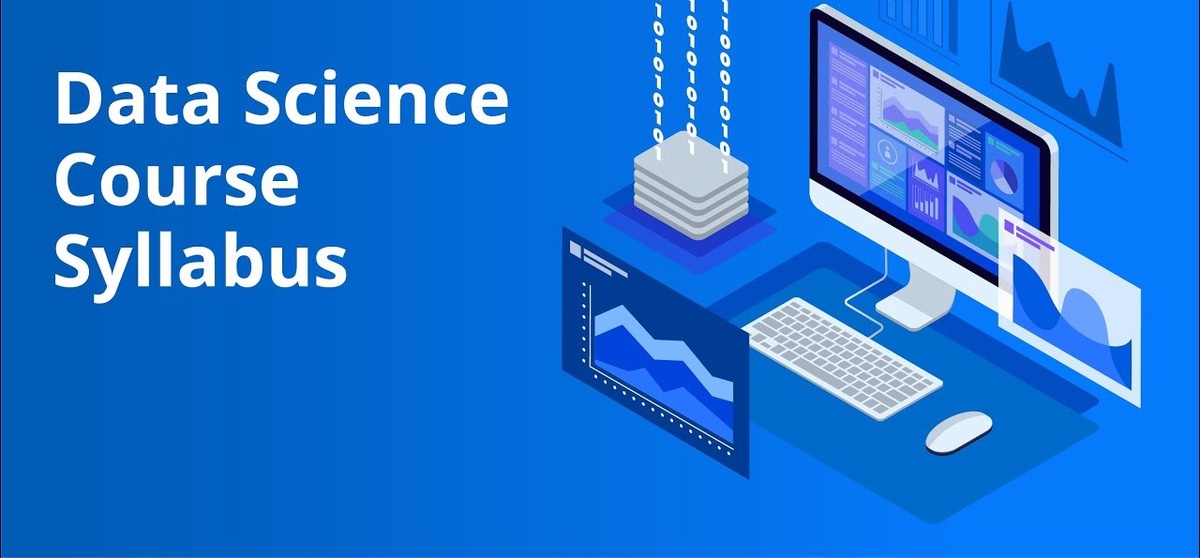Online data science courses have grown in popularity as a result of India's recent explosion in the demand for trained data scientists. Prospective data scientists could now tailor their studies to match their schedules, thanks to the flexibility of these courses. However, due to the abundance of options available, selecting the optimum approach may be challenging. This article digs into the data science syllabus, and how students may use it to make well-informed decisions as they work toward becoming data science professionals.
The Anatomy of an Effective Data Science Syllabus
A well-structured data science syllabus acts as a road map, leading students through the field's essentials. Here's an in-depth look at what a strong curriculum should include:
Foundations
- Mathematics: Covering essential ideas from Statistics and Linear Algebra gives the mathematical framework for data analysis and modeling. This incorporates probability theory, which is essential for comprehending data uncertainties.
- Python Programming: Python Programming is required for data manipulation, analysis, and model creation. The curriculum should include not just the foundations, but also more advanced topics like object-oriented programming and Python libraries like NumPy and Pandas.
- Probability & Data Structures: Understanding probability theory and data structures is essential for efficient data storage, retrieval, and manipulation. A comprehensive syllabus delves into advanced data structures and their applications in data science.
Data Acquisition and Manipulation
- Data Collection: Learn techniques for gathering data from diverse sources, including databases, APIs, and web scraping. The syllabus should emphasize ethical considerations and the legal aspects of data collection.
- Data Cleaning and Wrangling: Master the art of cleaning and pre-processing real-world data to ensure accuracy and usability for analysis. This involves dealing with missing data, and outliers, and handling diverse data types effectively.
Exploratory Data Analysis (EDA)
- Data Visualization: Explore effective visualization techniques to identify patterns, and trends, and communicate insights. The syllabus should cover a variety of visualization tools and methods for conveying complex information visually.
- Descriptive Statistics: Apply descriptive statistics to summarize and analyze data characteristics. A robust syllabus should include advanced statistical techniques and their applications in data interpretation.
Machine Learning (ML)
- Supervised Learning: Delve into popular supervised learning algorithms like linear regression, decision trees, and support vector machines. The syllabus should emphasize the application of these algorithms in real-world scenarios.
- Unsupervised Learning: Discover the power of unsupervised learning algorithms such as k-means clustering and dimensionality reduction techniques. Practical applications and challenges in unsupervised learning should be a focal point.
- Model Evaluation and Hyperparameter Tuning: Learn to evaluate model performance and optimize hyperparameters for optimal results. The syllabus should cover cross-validation, grid search, and advanced tuning techniques.
Deep Learning (DL)
- Neural Networks: Understand the fundamentals of neural networks and their applications in deep learning tasks. The data science syllabus should progress from basic concepts to advanced topics, including transfer learning and neural network architectures.
- Advanced Architectures: Explore popular deep learning architectures like CNN & RNN. Speech recognition, image identification, and natural language processing are three areas where deep learning has profound practical usability.
Big Data and Cloud Computing
- Big Data Fundamentals: Grasp the challenges and solutions associated with handling large-scale data using tools like Hadoop and Spark. The syllabus should include hands-on experience with big data technologies and scalable data processing.
- Cloud Computing Platforms: Learn to leverage cloud platforms for efficient data storage, processing, and analysis. Practical knowledge of cloud services like AWS, Azure, or Google Cloud should be integrated into the syllabus.
Domain-Specific Applications
- Real-world Case Studies: Gain insights from case studies showcasing data science applications across diverse domains like healthcare, finance, and marketing. The syllabus should encourage critical thinking and problem-solving through the analysis of real-world scenarios.
- Industry-specific Tools: Acquire knowledge about tools and techniques relevant to specific data problems within different domains. This includes familiarity with industry-standard software and applications used for data analysis and decision-making.
Beyond the Basics
- Project-Based Learning: Apply knowledge to practical projects simulating real-world scenarios to build a strong portfolio. The syllabus should guide students through the entire project lifecycle, from problem definition to presentation of results.
- Soft Skills Development: Master communication, collaboration, and problem-solving skills essential for success in any data science role. Incorporating teamwork and communication exercises into the syllabus enhances students' interpersonal skills.
- Industry Experts and Mentorship: Benefit from guidance and insights from experienced data scientists through workshops, guest lectures, or mentorship programs. Exposure to industry professionals provides invaluable perspectives and networking opportunities.
Conclusion
An articulate data science syllabus serves as a compass, guiding students through the treacherous landscape of online courses. Aspiring data scientists in India may make informed decisions by knowing the key components stated in this guide and ensuring that the course they choose offers them the necessary knowledge and skills. Remember that taking the right path is the key to unlocking amazing career opportunities and contributing meaningfully to the dynamic world of data-driven decision-making. Make an educated selection and begin your journey to becoming a proficient data scientist.


No comments yet